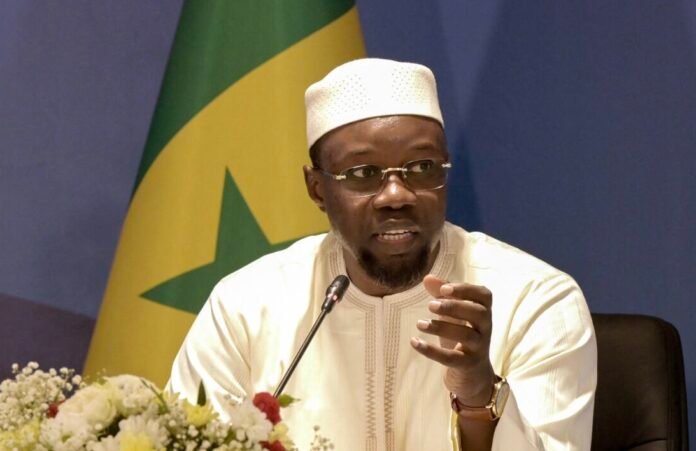Senegal’s Prime Minister Ousmane Sonko has sharply criticised the recent military takeover in neighbouring Guinea-Bissau, dismissing the coup as illegitimate and calling for the country’s suspended election process to resume without interference. His remarks on Friday add to growing regional and international concern over yet another disruption of democratic governance in West Africa.
The situation unfolded days after Guinea-Bissau’s military removed the civilian administration before results from the presidential and legislative elections could be announced. In the aftermath, senior officers appointed Major-General Horta Inta-a as transitional president and named Illidio Vieira Te—an ally of the ousted leadership—as both prime minister and finance minister, signalling efforts to entrench military authority.
Sonko Calls for Return to the Ballot
Speaking before Senegalese lawmakers, Sonko insisted that the halted vote must be completed.
“This process cannot be abandoned,” he said. “The electoral commission must be able to announce the winner without intimidation or manipulation.”
The contested presidential race was expected to be close, with incumbent Umaro Sissoco Embalo facing challenger Fernando Dias, a relative newcomer whose supporters claim he was positioned to win when the coup occurred.
Justification for the Takeover Sparks Debate
In his first public address, Inta-a defended the military’s actions, alleging that “narcotraffickers” were attempting to undermine Guinea-Bissau’s institutions and that the intervention was necessary to protect national stability. He promised a one-year transition period.
But opposition groups backing Dias have rejected the military’s explanation, describing the coup as a last-minute attempt by Embalo and his allies to prevent the release of results that would have confirmed his defeat.
Network of Embalo Allies in the New Administration
Despite Embalo having left the country—flown to Senegal after the intervention of ECOWAS—the newly installed leadership appears closely tied to the former president. Te, the newly appointed prime minister, served as Embalo’s campaign director and has previously held the finance portfolio. Inta-a and newly named armed forces chief Tomas Djassi are also considered close to Embalo, according to political analysts.
Guinea-Bissau’s history of military involvement in politics, coupled with its reputation as a trafficking hub, has made it one of West Africa’s most volatile democracies. The latest coup is viewed as part of a broader pattern of instability affecting the region.
International Alarm over Detentions and Media Repression
The UN human rights chief Volker Türk reported that at least 18 people—including opposition politicians and government officials—have been arbitrarily detained with limited or no communication access. He also raised concerns about threats directed at journalists and media organisations, warning that fundamental civil liberties were being eroded.
ECOWAS responded by suspending Guinea-Bissau from its decision-making bodies and announced it would dispatch senior mediators. Nigeria, which hosts ECOWAS headquarters, separately condemned the takeover and highlighted concerns about the safety of election observers.
Former Nigerian President Goodluck Jonathan—who was in the country as part of a West African Elders Forum observer mission—was unreachable for several hours after the coup, prompting fears for his safety. A later statement confirmed that he was evacuated on a special flight.
Calls for Restoration of Constitutional Rule
The African Union and European Union have both called for an immediate return to constitutional order. UN Secretary-General António Guterres echoed their position, urging support for regional organisations working to stabilise the situation.
His spokesperson, Stéphane Dujarric, said the UN “strongly condemns the coup d’état” and warned against attempts to break democratic frameworks.
Source:Africa Publicity








